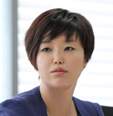Syria and the International Community
Panel: Session 3 (Grand Ballroom III)
Date/Time: Tuesday, April 30, 2013 / 14:00-15:15
Moderator:
Jang Ji-Hyang, The Asan Institute for Policy Studies
Speakers:
Khalid Abdulla Al Bu-Ainnain, Institute for Near East and Gulf Military Analysis
Kayhan Barzegar, Institute for Middle East Strategic Studies, Tehran
John Calabrese, Middle East Institute
Sinan Ulgen, Centre for Economics and Foreign Policy Studies, Istanbul
Rapporteur: Olivia Enos, The Heritage Foundation
Session Description
As the Syrian civil war enters its second year, a decisive outcome continues to remain elusive. Early fears of regional spillover have been realized, with the conflict drawing in all of Syria’s neighbors and igniting a regional and sectarian struggle. Yet, the core of the Assad regime has managed to hold onto the levers of power despite being a shell of its former self. Furthermore, even as the international community stands and increasingly acts against him, President Assad has continued his brutal campaign with the backing of key allies. There is no guarantee that Assad will be deposed any time soon, and if he is, it is abundantly clear that the Syria he leaves behind will be a devastated country. Total state breakdown in Syria—a country situated at the crossroads of the region’s major powers—would have repercussions for the entire region. The future power dynamics of the Middle East are being shaped by the Syrian conflict as the case tests the international community’s standards and capabilities for intervention.
Session Sketch
The crisis in Syria continues to escalate and recent developments have revealed that chemical weapons may have been used in the conflict. With this in mind, the international community is beginning to wonder if it might be too late to create meaningful resolution to the conflict through international intervention. At the Asan Plenum 2013, panelists discussed the role that the international community should play in the conflict in Syria and it was apparent that the precise outcome of the conflict is, at present, elusive.
Jang Ji-Hyang asserted that there are three possible outcomes to the civil war in Syria. Syria could either internally implode, defeat Assad with a better equipped Free Syrian Army, or an anti-Assad coalition could develop a coherent opposition movement. Later in the discussion, John Calabrese proffered a fourth alternative, stating that the worst case scenario?a de facto partition of the country?was most likely.
Khalid Abdulla Al Bu-Ainnain stated that while the Syrian conflict originally started as a natural effect of the Arab Spring it soon escalated into a seemingly unending conflict in part perpetuated by the myriad ethnic and religious groups residing within the country. This dynamic when combined with what Kayhan Barzegar identifies as domestic issues surrounding middle class rights and foreign factions, have led to a conflict that stridently continues. According to Barzegar, Syria diverges from the typical pattern of the Arab Spring because unlike Egypt, Tunisia, and even Libya, Syrian security forces and bourgeoisie members of society oppose democratic change and support the ruling dictator Bashar al-Assad. Calabrese also mentioned that the determination of the Assad regime, propaganda that trapped minorities into dependence on the regime, and the international community`s stated unwillingness to intervene, have made for a toxic combination that continues to prolong the life of the brutal regime.
Most of the panelists agreed that a U.S. intervention was unlikely. However, many of the panelists thought that intervention of regional actors would likely render a more suitable conclusion to the conflict. Sinan Ulgen argued that Turkey could play an integral role in the conflict by easing Syria into a regime change. He felt that Turkey had taken a hard stance on the Assad regime by asserting that Assad should not be allowed to lead any peace negotiations, but should be cautious not to usher in rapid changes in Syria. Barzegar suggested that Iran was a key actor that should also push for slow rather than expedited change in Syria. Unlike the U.S. these two actors have more vital national security interests in mind.
Ulgen stated that intervention should have happened, but now it is too late. With an estimated 1.4 to 3.8 million refugees and internally displaced people, a resolution to the conflict must come soon. But Assad`s propaganda, internal factions, poor air power capabilities, and a disorganized opposition continue to hold Syria in a gridlocked and bloody conflict. The end is unknown, but hopefully the end will come soon.

 Facebook
Facebook Twitter
Twitter